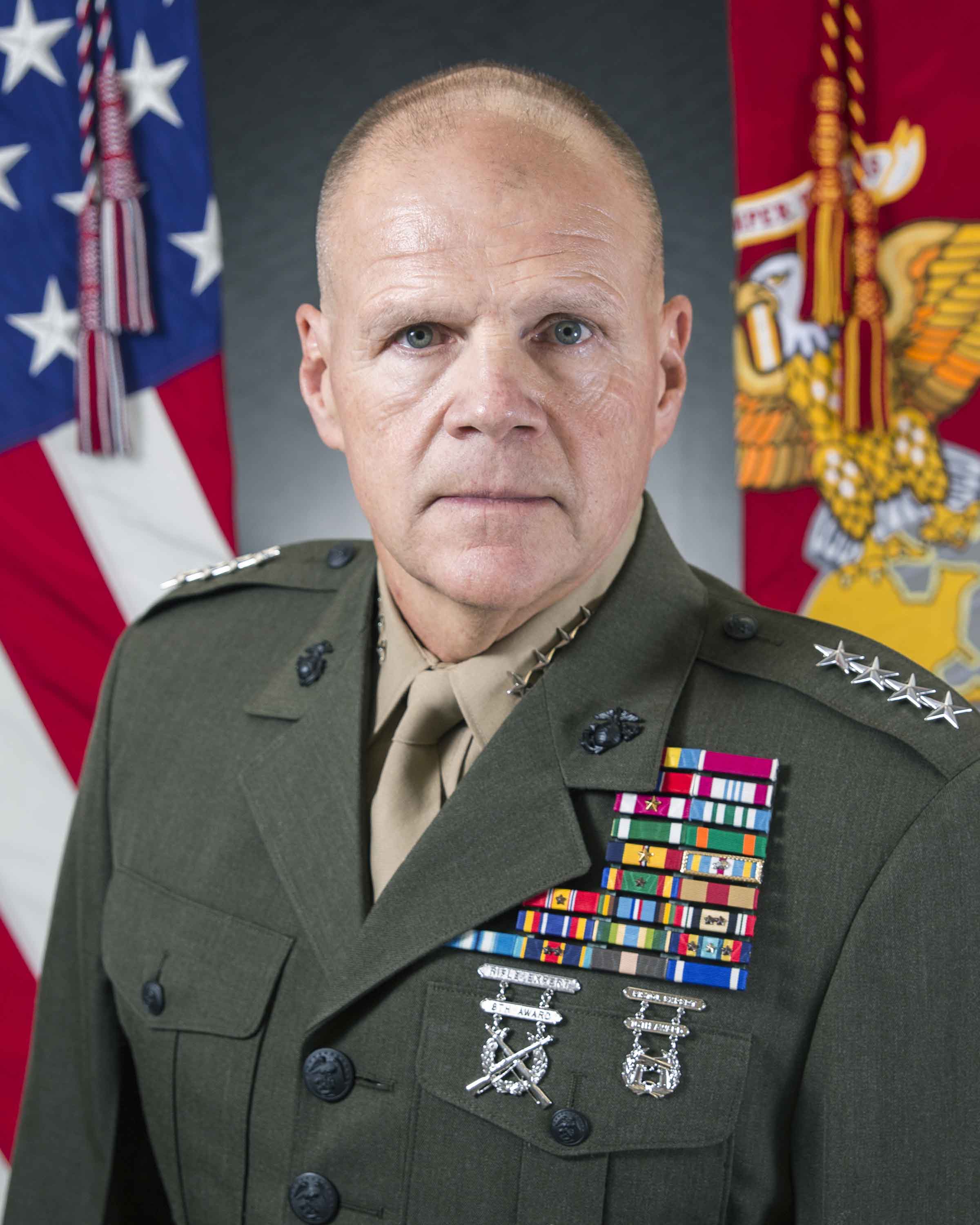
Last week, students and faculty had the opportunity to learn about the qualities of leadership from Robert Neller, four-star general who served as the 37th Commandant of the Marine Corps.
Neller spoke at a “Food for Thought” event. In his speech, titled, “Leading from the Front: Practical leadership lessons from 44 years of uniformed service to our nation,” Neller shared his thoughts and stories about leadership, emphasizing the essential qualities of a leader.
After 44 years of serving the country in the marines, Neller has had vast experience as a leader but immediately told the audience that neither he nor anyone else could give the necessary qualities and traits for leadership.
“There is nothing that I am going to say today that is going to make you a great leader, because it all starts with who you are and the type of person you are,” Neller said.
In order to be a good leader, a person has to have integrity, competence, discipline, honesty, humility, selflessness, intelligence, and respect, Neller explained. These are the qualities that make people want to follow a leader. And, Neller pointed out, there is a big difference between being a willing follower and being a forced follower.
“If you become a leader, no one is going to follow you if you are arrogant, if you don’t tell the truth, if you’re not competent and don’t have a plan and if you don’t care about other people or are disrespectful,” Neller said.
Neller pointed out that leadership is not easy because a person has to make the choice to pursue these qualities. Leadership means sacrifice and self-denial because a good leader is never about himself, but about the team.
“Being a leader always is going to involve self-denial because being a leader is not a position of privilege,” Neller said. “It is a position of responsibility.”
Neller said he knows how hard leading is. He shared a story about when he was an officer commanding marines and had a rule that officers eat last so that they would serve the other men first.
“Leaders eat last,” he said.
Professor of History Tom Connor, who attended the lecture, said he appreciated that lesson.
“That was a great way to communicate the importance of humility in a good leader, and the simple fact that the work of a leader is more about the tasks that need to be accomplished than about the leader,” Connor said in an email.
Since sacrifice is such an essential part of being a good leader, Neller highlighted that humility is also an essential quality in a leader. A good leader cannot be passive or arrogant.
“There is a line between being arrogant and being passive. It’s called competence,” Neller said.
Neller told the audience to look to leaders in their own personal lives and think about their qualities.
“It was never about them, it was always about the team,” he said.
For Lt. Col. Michael Murray, Hillsdale’s legal counsel and administrative director of planned giving, Neller was one of the leaders in his life that he has always looked to.
Murray, a former Marine, met Neller in Uganda when he was deployed. Neller’s son was playing football for Hillsdale at the time, and years later, Murray came to work for the college. Over the years, Murray has remained in contact with Neller.
“You want to look at people you can aspire to, people who set the example. He has set the example and he has served our country very faithfully,” Murray said. “And he has just been a great example to me, from being a marine to being a good man and a good citizen.”
But Neller emphasized that he and every other good leader had to make a choice to pursue the virtuous life and qualities that make a leader. It would have been easy to choose to simply ignore those qualities and choose to live a less virtuous life. But then he wouldn’t have been a leader.
“There’s no secret here,” Neller said. ”Be a man or woman of virtue, treat other people with respect, tell the truth always, learn your job. Try to become as competent as you can be. Be kind. Try to put yourself in the other person’s shoes. Don’t be arrogant.”

